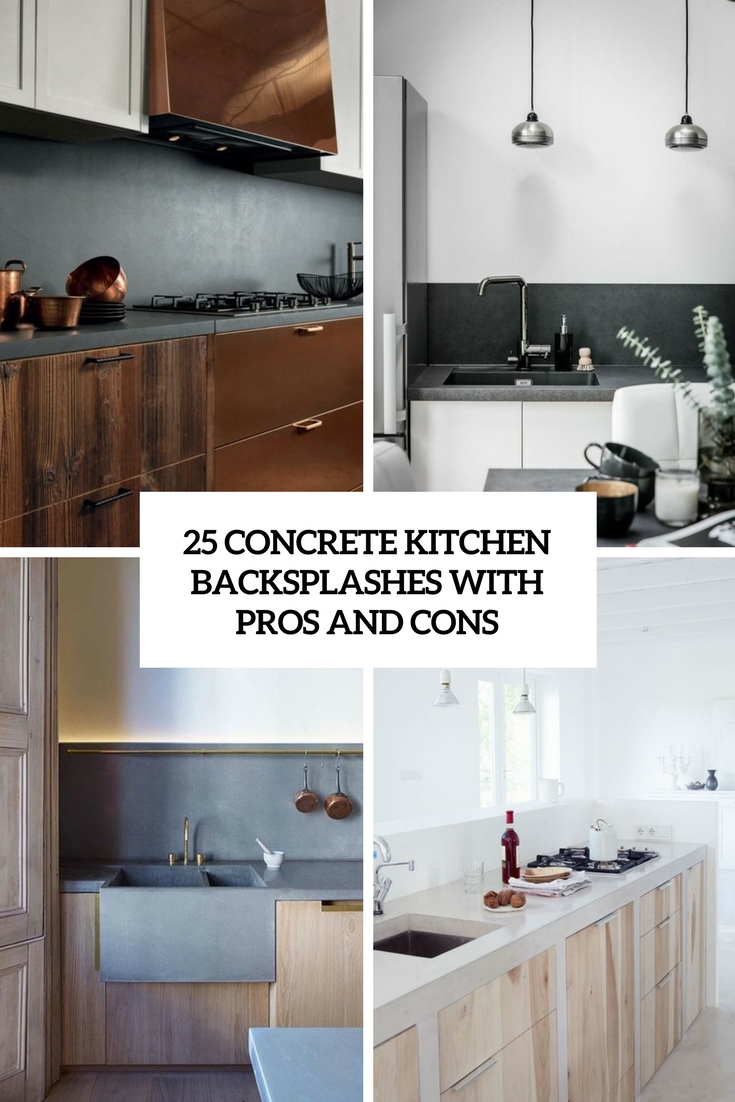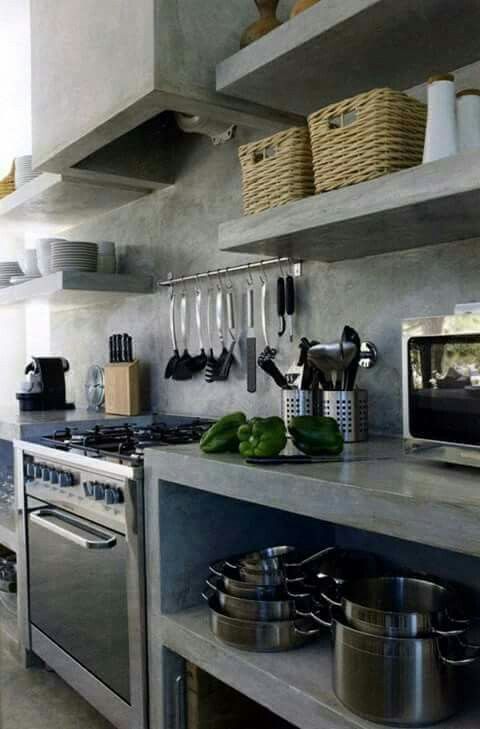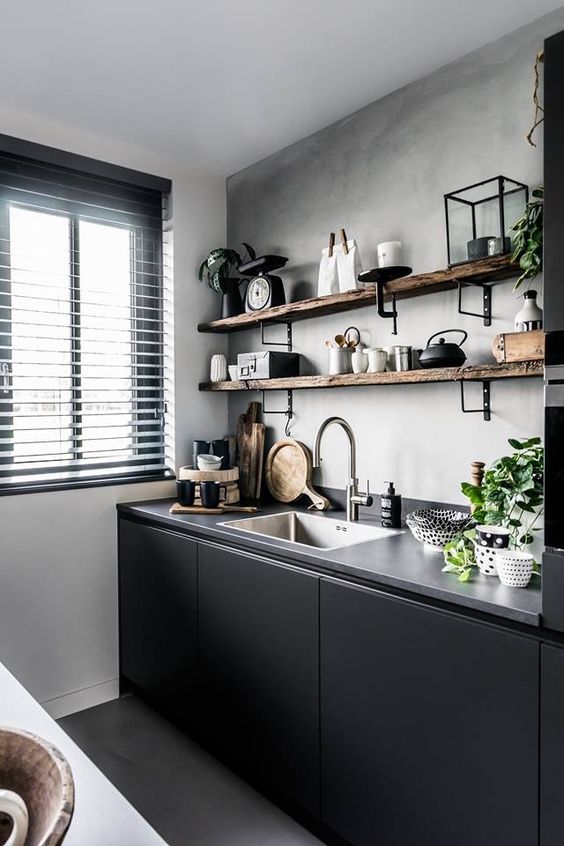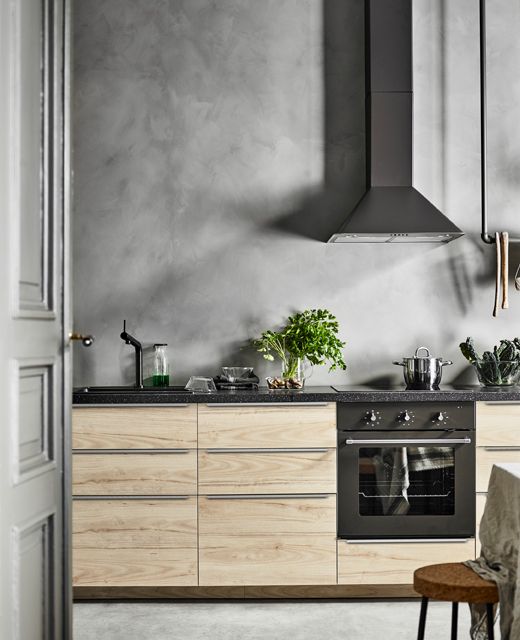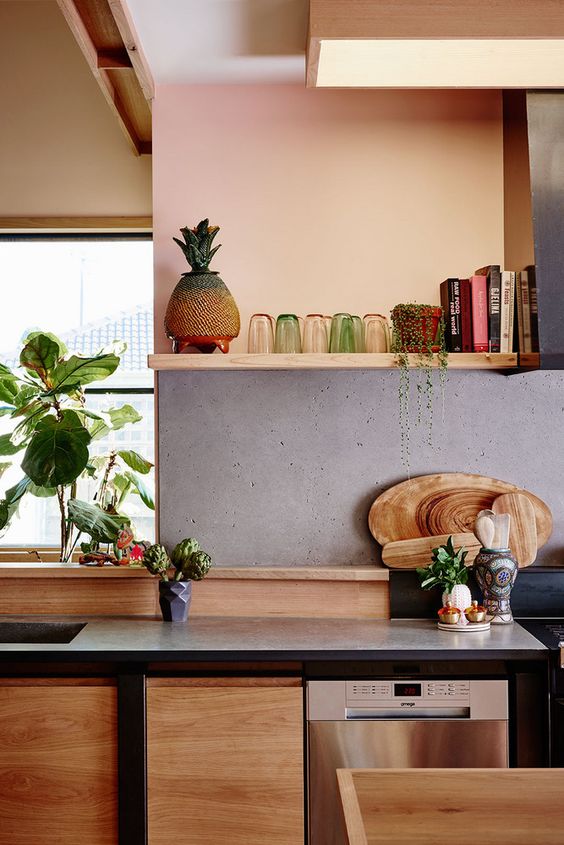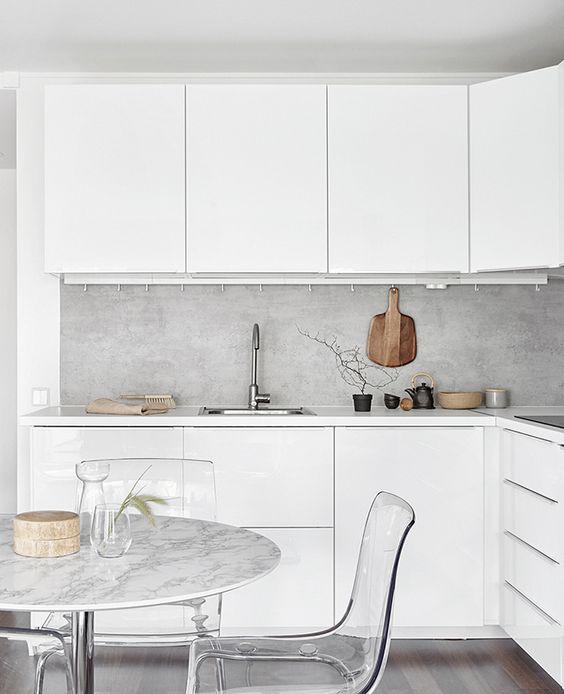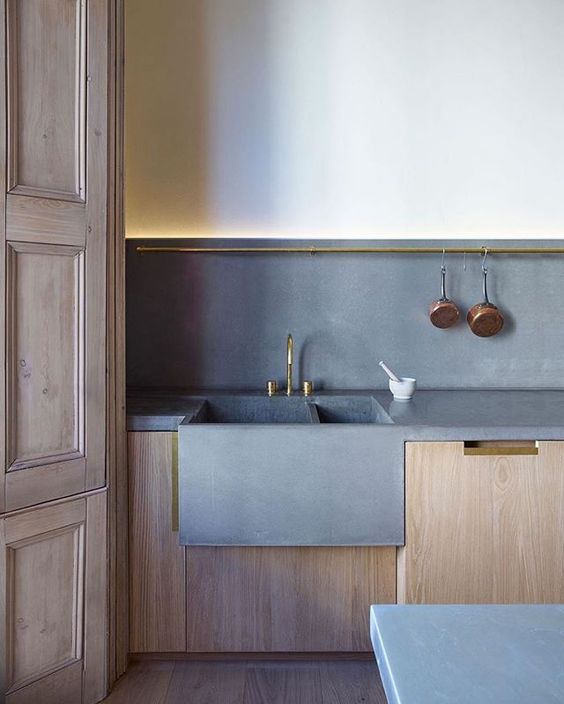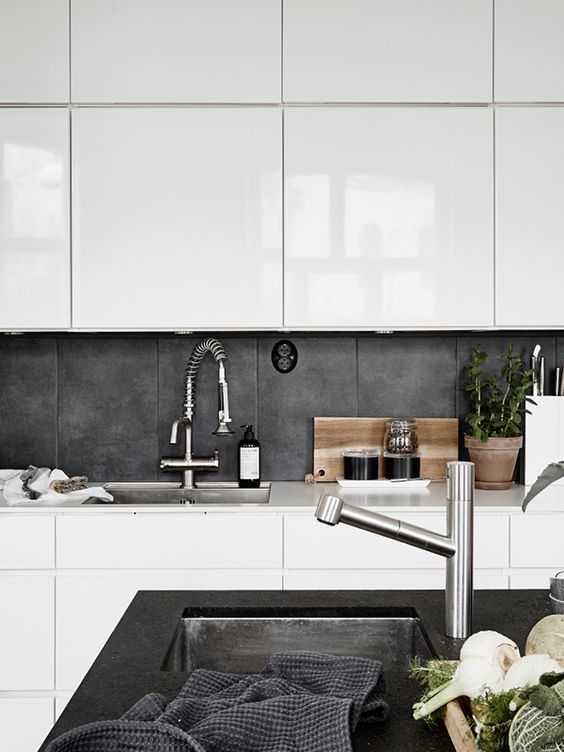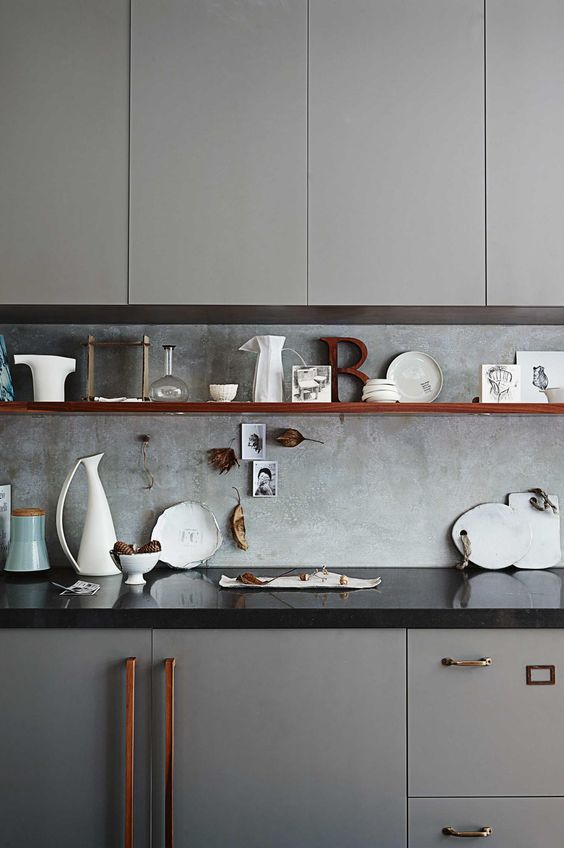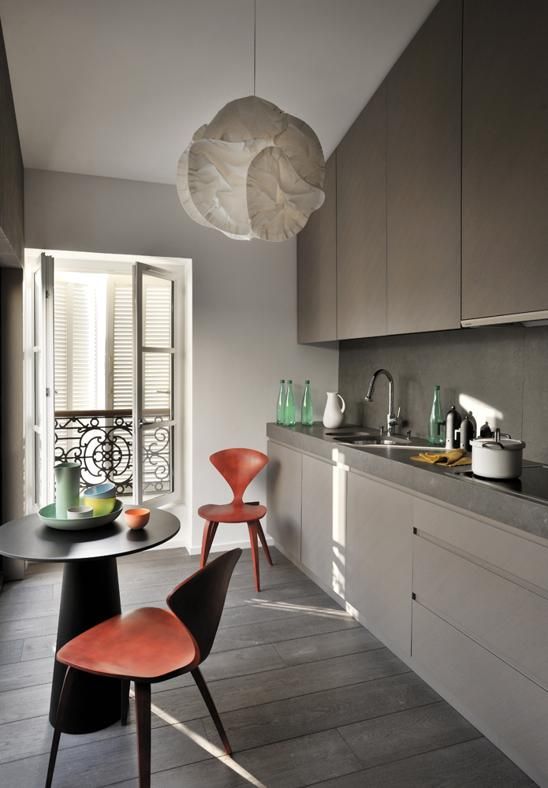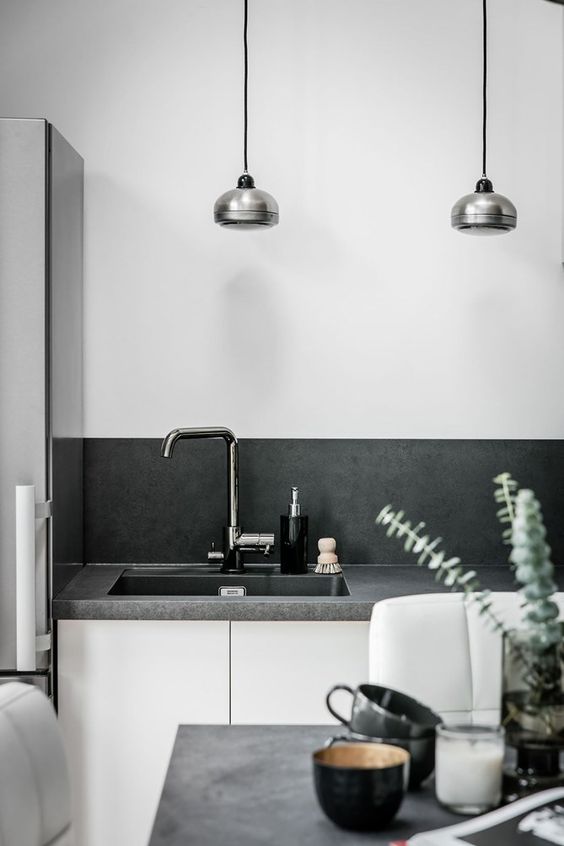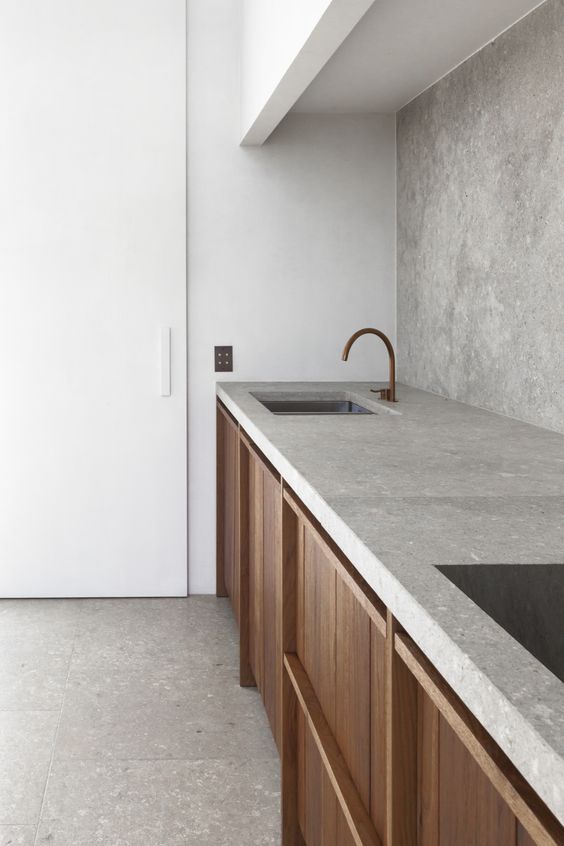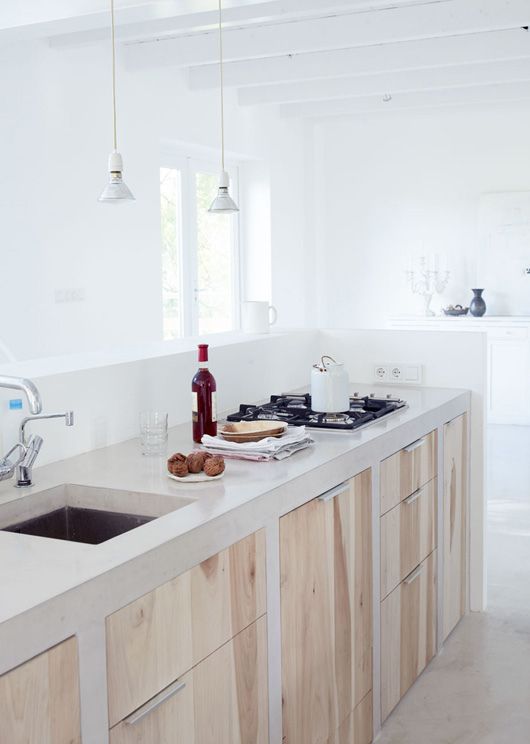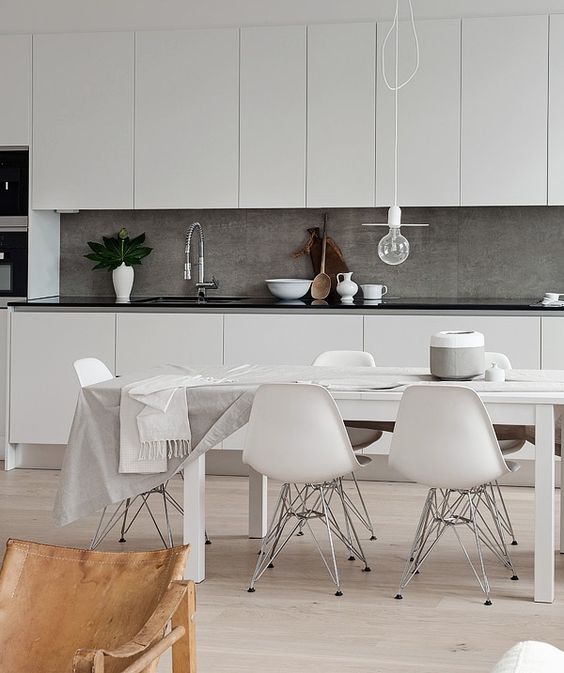Concrete is a very popular material to use in home decor, and it can be seen in many spaces, from industrial to boho ones. It’s suitable for literally any room from a bathroom to a bedroom if it fits your design but today I’m going to discuss something more exact: concrete kitchen backsplashes. Are they functional or not? Are they worth it or not? Let’s have a look at pros and cons and decide.
Pros
Concrete is very trendy, it’s a great idea to add an edgy feel to the space, using concrete backsplashes adds texture and depth to the decor. It’s great not only for industrial or minimalist spaces, it’s used in many other kitchens, too: in modern, art deco, vintage and many other kitchens.
Concrete has lots of different looks: it can get any shapes, stains, textures and finishes, so you’ll be able to find something proper for any style of the kitchen.
Concrete isn’t expensive, comparing it to marble, quartz and other costly solutions, I may say that this is rather a budget-friendly option, especially if you DIY it yourself.
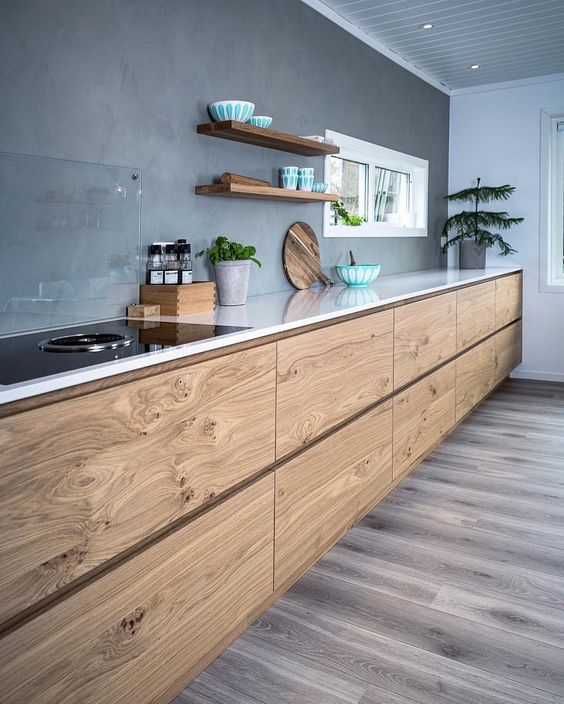
to highlight the modern kitchen look go for a concrete backsplash and add a glass screen where needed
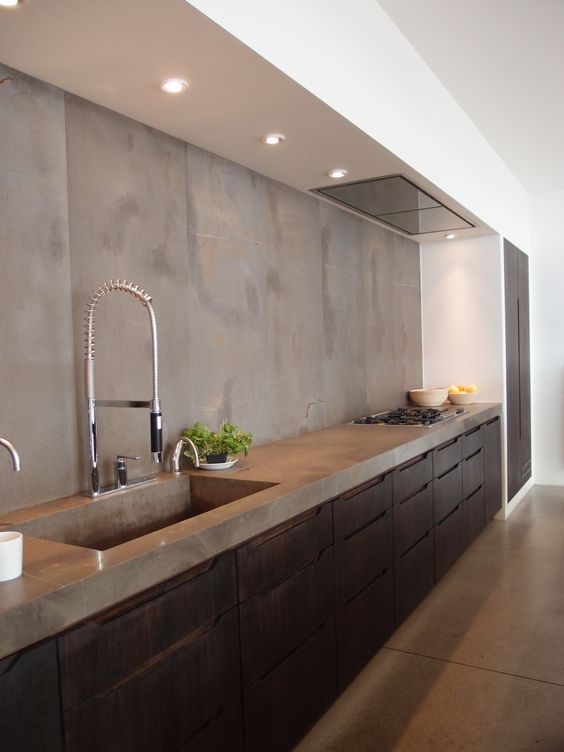
dark-stained wooden cabinets with a concrete backsplash and countertops for a textural and catchy look
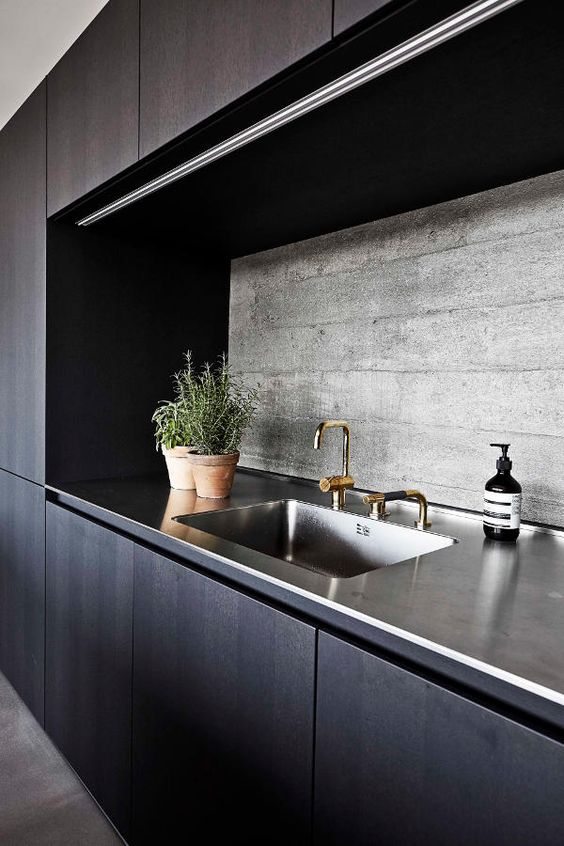
dark wooden cabinets, stained steel countertops and a textural concrete backsplash for a stylish moody look
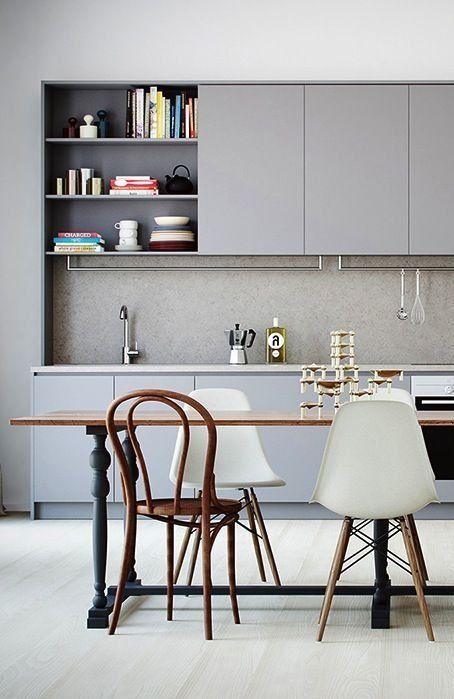
a monochrome grey kitchen is perfectly completed with a raw concrete backsplash that makes it cooler
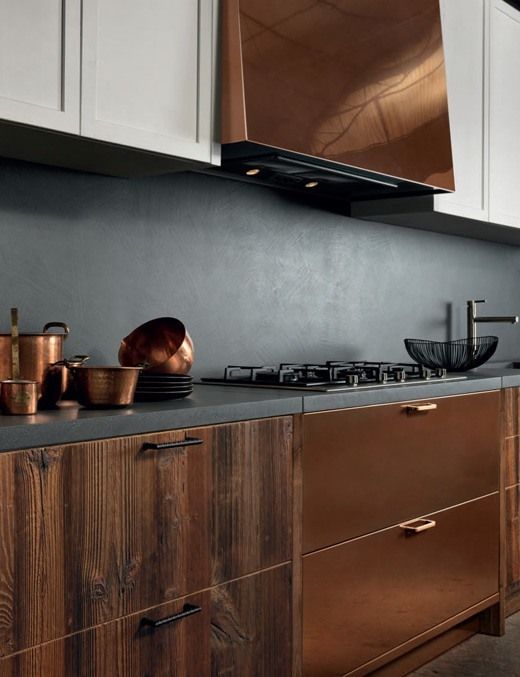
stained wood, copper and white kitchen cabinets calmed down with a grey concrete backsplash and countertops
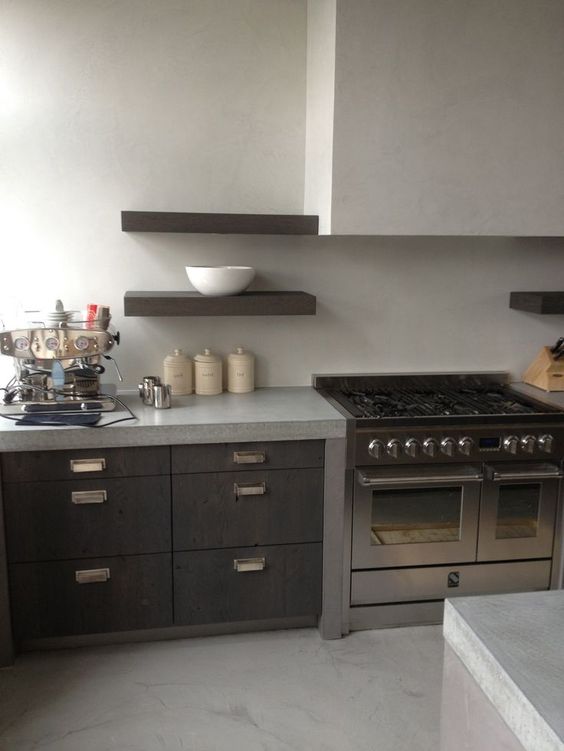
light-colored creamy concrete countertops and a backsplash for a contrast with dark stained cabinets
Cons
Concrete is very prone to staining and many other imperfections that can appear. That’s because the porous substance can absorb liquids and even bacterial growth, which is why it’s incredibly important to seal the surface upon installation. In theory, sealing will make your counters stain-, scratch- and heat-resistant. Unfortunately, even sealed concrete will show markings, especially olive oil, red wine, juice, or coffee. Even water spots can make the backsplash look not very neat, so if you are a freak, opt for some other backsplashes or at least add a glass screen where necessary, some owners go for a fully glass covered backsplash.
Concrete can crack: that’s a risk that comes along with concrete countertops, most commonly when poured in place rather than pre-cast. To prevent it, you may add fiber reinforcement, rebar, and/or wire mesh but if they still appear, they can be repaired.
Concrete backsplashes require maintenance. Reseal your backsplash every one to three years, avoid abrasive cleaners and scrubbers that can damage sealer. Consider all these pros and cons and decide if concrete is worth it or not.
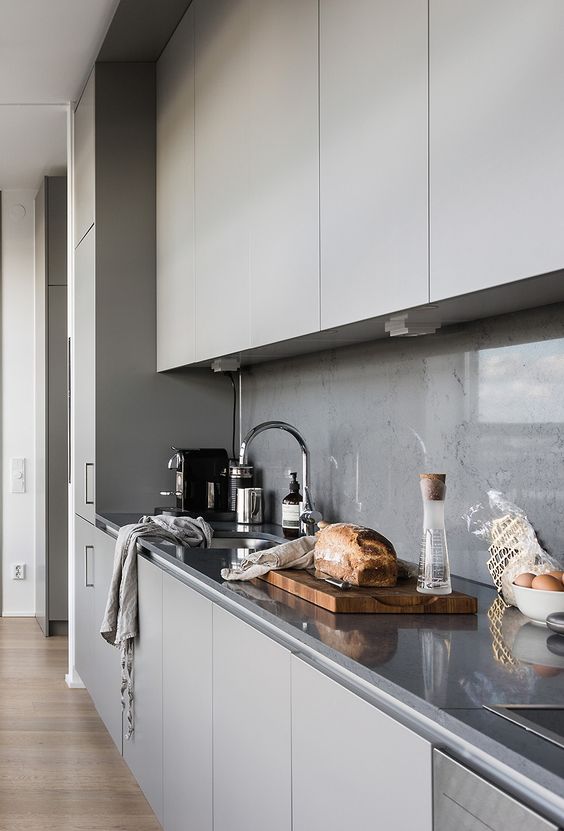
a minimalist grey kitchen with a concrete backsplash covered with a glass screen completely for keeping it clean
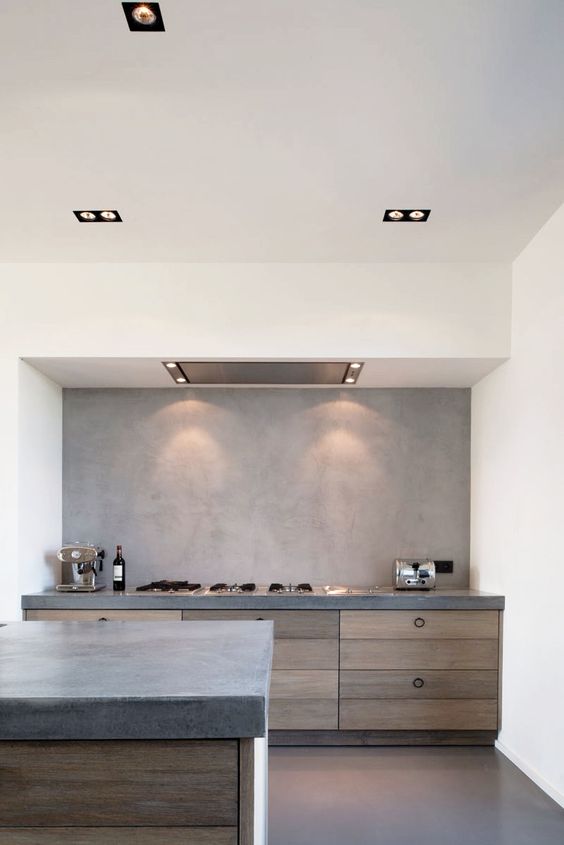
a minimalist meets industrial kitchen with a concrete backsplash and countertops plus wood for a texture
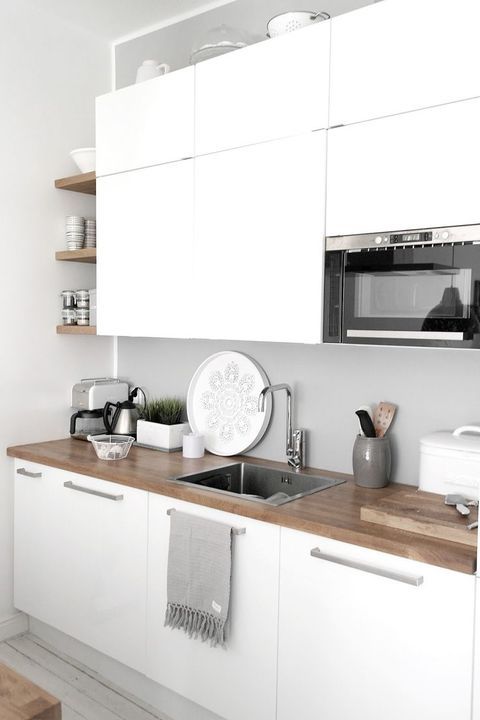
a minimalist white kitchen with a wooden countertop and a sleek concrete backsplash for an edgy feel
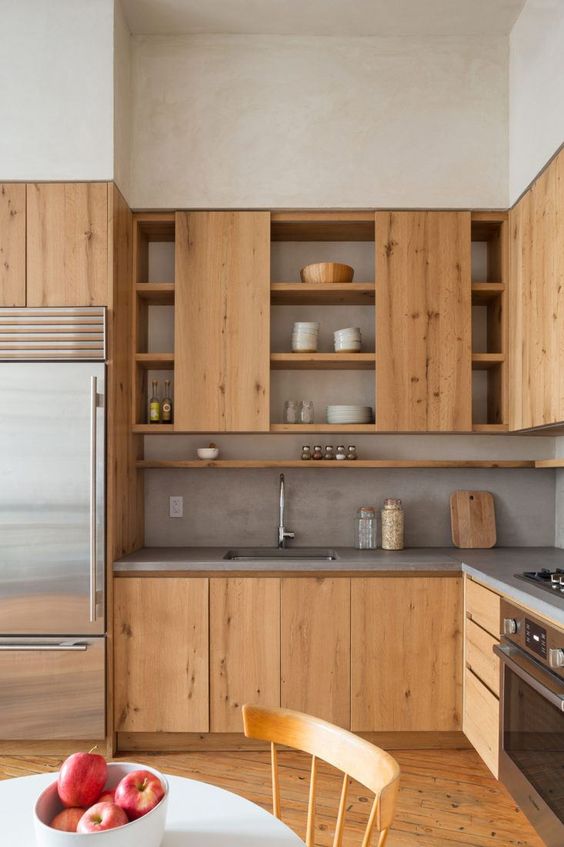
add texture to the light-colored wood kitchen for more interest
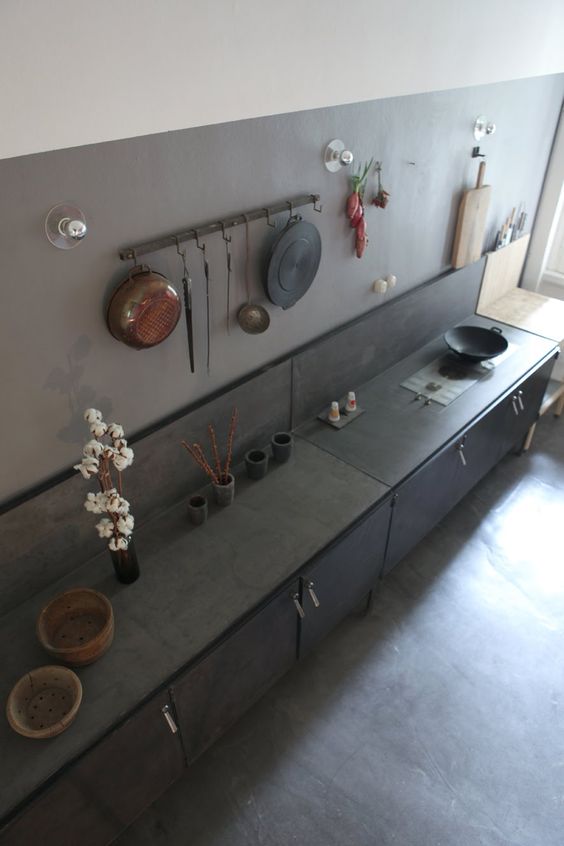
black metal cabinets and a grey reinforced concrete backsplash and countertop for an industrial look
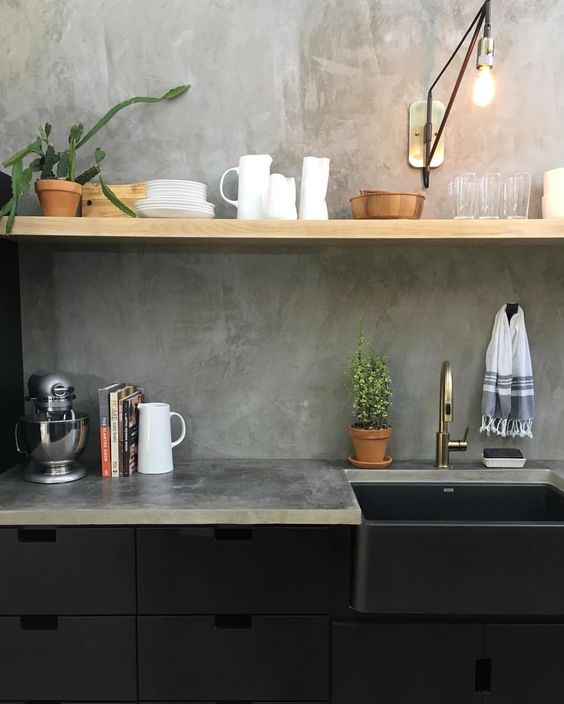
black metal cabinets, an open shelf and a concrete backsplash and countertops for an industrial look
